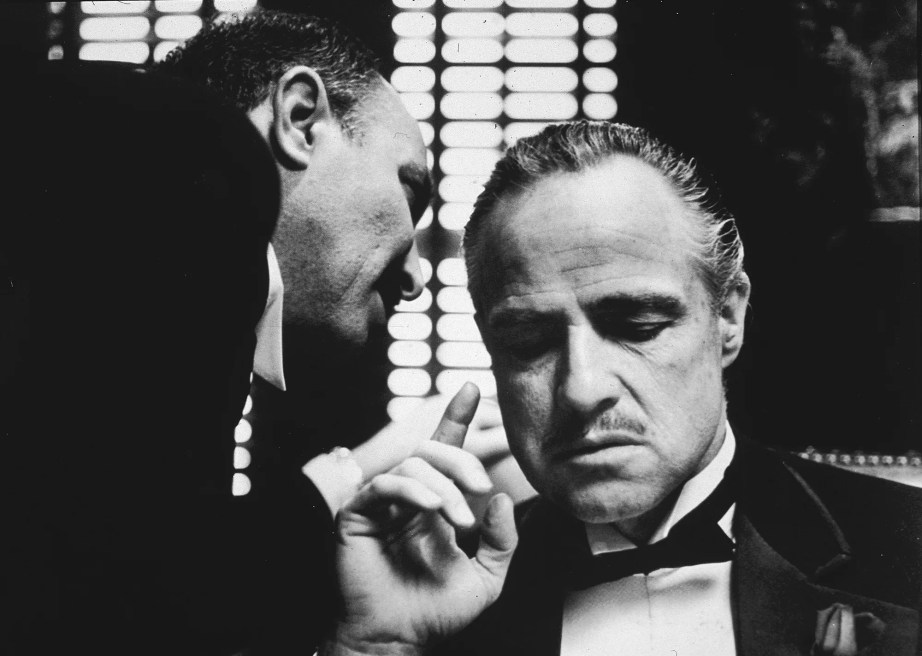
They wear suits, not ski masks. They pass laws, not threats. But power smells the same, whether it’s draped in a flag or a fedora.
Governments and mafias aren’t enemies—they’re rivals in the same game: control, obedience, and the art of fear.
One just mastered the art of printing its violence on letterhead.
The other doesn’t bother with the paperwork.
Both build pyramids of power, each block cemented with loyalty, greed, and force. Let’s dismantle the structure, piece by piece, and see how deep the similarities run.
Hierarchy — The Pyramid’s Foundation
Every empire needs a blueprint, and the pyramid is the design of choice.
At the peak: a figurehead with teeth—President, Prime Minister, or Don.
Below: loyal lieutenants—bureaucrats or capos, senators or soldiers—oiled cogs in the machine.
At the base: the masses, conditioned to obey or be crushed.
Governments demand oaths to the state. Mafias demand omertà, a vow of silence. Both are chains of submission, disguised as duty.
Defy the rules? Governments exile you to courtrooms or blacklists. Mafias prefer shallow graves.
Either way, the pyramid stands tall, built on the backs of the obedient.
Fear + Favor = Obedience
How do you tame millions? Carrots and sticks, served with a smile.
Governments wield laws, police, and prisons—calling it “justice.”
Mafias brandish threats, arson, and bullets—calling it “business.”
Both dangle rewards to keep you in line:
—Tax breaks or protection rackets.
—Welfare checks or quick loans.
—Social security or a seat at the family’s table.
The deal is simple: submit, and you’re safe—from them.
Speak out? Governments slap you with lawsuits or surveillance, like the U.S. targeting whistleblowers like Edward Snowden.
Mafias send a message in lead, like the Sicilian mob silencing informants.
Different tools, same script: stay quiet, or pay the price.
Money — The Lifeblood of the Pyramid
Power runs on cash. Both systems know how to bleed it dry.
Governments levy taxes, tariffs, and fines—revenue to feed the state.
Mafias demand tribute through extortion or drug profits—fuel for the family.
You don’t “donate” to either. You pay to exist in their shadow.
The lines blur when money changes hands under the table.
In the 1980s, U.S. politicians took mob bribes during the ABSCAM scandal. Today, Mexican officials allegedly shield cartels for a cut of the profits.
When governments and mafias swap favors, the pyramid doesn’t just stand—it grows.
Is it a state? Or a syndicate in a better suit?
Legitimacy — The Fragile Facade
Governments flaunt elections and constitutions, cloaking themselves in legitimacy.
Mafias lean on initiations and unwritten codes, binding members through blood and fear.
But legitimacy is just perception—a house of cards waiting for a breeze.
When governments fail—potholes unfilled, hospitals crumbling—mafias step in.
In southern Italy, the ‘Ndrangheta provides jobs and loans faster than the state. In favelas, cartels settle disputes where police fear to tread.
When people whisper, “The mafia does more than the mayor,” it’s not praise—it’s a regime’s collapse.
Yet governments brand them criminals, ignoring the vacuum they created.
Some try to fight back—whistleblowers, reformers—but the pyramid often buries them.
Monopoly on Violence — The Blood Ledger
Governments claim violence as their divine right—police, armies, drone strikes—all in the name of order.
Mafias wield it for respect, carving their territory with knives and guns.
Both call it necessary. Both call it “the cost.”
From the CIA’s torture programs to the Cosa Nostra’s hits, the body count piles up.
Innocents caught in the crossfire? Governments blame “collateral damage.” Mafias shrug at “business.”
The 2010s saw U.S. drones kill civilians in Yemen; cartels in Colombia massacred villages to control cocaine routes.
Both defend the narrative. Both protect the pyramid.
Violence is only unjust when it doesn’t serve the throne.
The Handshake in the Shadows
The pyramid’s mortar is strongest where governments and mafias merge.
The CIA partnered with mobsters in the 1960s to plot Castro’s assassination.
Mexican cartels allegedly fund political campaigns for protection.
Russian oligarchs blur the line between state and syndicate, wearing both hats with ease.
Even in democracies, the game smells familiar.
Lobbyists funnel millions to shape laws, like Big Pharma rewriting drug policies.
Corporate donors dodge taxes or regulations, like paying protection to a cleaner mob.
No kneecaps are broken—just democracy, bent to the highest bidder.
The Pyramid’s Weakness
Governments and mafias aren’t opposites. They’re reflections, each claiming a throne built on the same foundation: power, dressed as necessity.
Governments sell legitimacy with ballots and flags.
Mafias sell it with fear and favors.
But both need you to believe they’re different.
Stop believing, and the pyramid trembles.
Question their rules, their violence, their “protection.”
See through the branding, and the throne starts to crack.
That’s when the real fight begins—not against one gang or the other, but against the pyramid itself.



